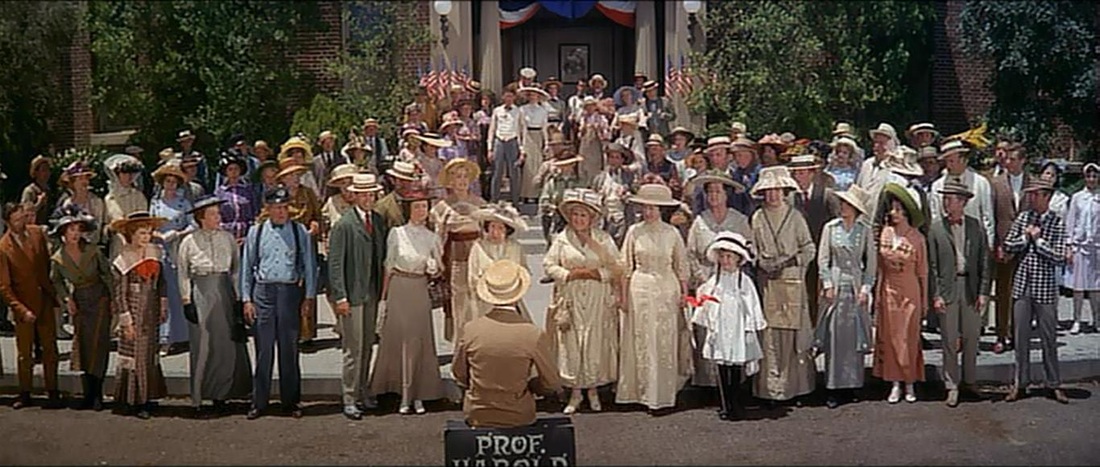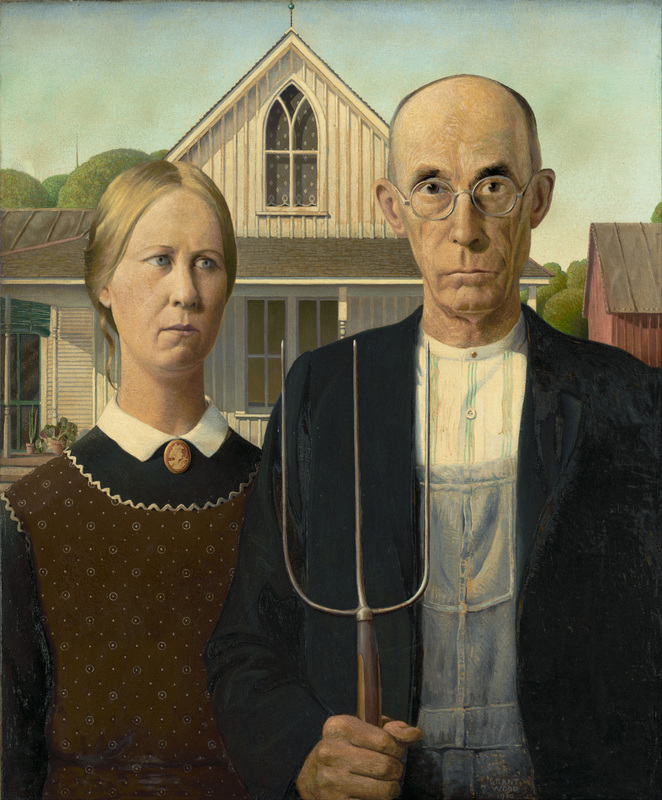|
Oh, there's nothing halfway
About the Iowa way to treat you, When we treat you Which we may not do at all. -- “Iowa Stubborn,” Meredith Willson. Thank you, Iowa (as the politicians say.) One of the best movies ever made about America -- right up there with Brooklyn movies and LA Noir movies and Deep South movies - - is the musical "The Music Man," written by the great Meredith Willson (two Ls, cantankerously), originally from Mason City, called River City. The movie is about another time and place and a flimflam man carrying a cheap suitcase, alighting from a smoky passenger train. Somebody asks where he is going and he says, "Wherever the people are as green as the money." Now they come on chartered jets, but they still want something, in this case votes, from clusters of Iowan in gyms and halls, earnest and dressed for winter (with the occasional Bernie t-shirt.) I recalled covering a few stories in Iowa (including Pope John Paul II’s visit to a heritage farm, charming Lutherans) and for one of the rare times since I retired I actually wanted to be working, talking to people in those clusters. I kept thinking of wily Robert Preston, calling himself Prof. Harold Hill, and heartbreakingly lovely Shirley Jones as the librarian, and Buddy Hackett, for goodness’ sakes, settled down in Iowa, and all the characters, the puffed-up men and hormonal teenagers and cackling wives who were smarter than their husbands, of course. And there was Trump, roaring in on his own jet, selling hot air out of an empty suitcase and empty mind. The Iowans asserted themselves in a few directions, going for Sr. Canada first and El Joven third and leaving Trump in a very loser-like second. (And what about his bluster that he can get things done?) He got on his plane and went east, unlike The Music Man, who…but heck, rent the movie. The Iowans also went 50-50 for Clinton and Sanders, now joined at the hip like the couple in the Grant Wood painting, “American Gothic.” All those people, coming out on a wintry night, did not settle much, but they did firmly establish that Trump did not get the girl in River City. For a different metaphor of Trump, the pro-wrestling bozo, I urge you to read David Brooks’ brilliant column in the NYT. I loved watching Iowans in their clusters – the Iowa-stubborn female vet who cursed the VA live on MSNBC, the Iowa-stubborn young man who held out for Martin O’Malley in his final hours as a candidate, the Iowa-stubborn voters who cheered Cruz and Rubio and Trump and Clinton and Sanders as they vanished into the night, leaving Iowa to Iowans. And we're so by God stubborn We could stand touchin' noses For a week at a time And never see eye-to-eye. -- "Iowa Stubborn," Meredith Willson.
Roy Edelsack
2/2/2016 01:27:47 pm
Brooks asks, "Can Rubio take his growing establishment base and reach out to the working-class voters with a message that offers concrete assistance for those who are being left behind?"
George
2/2/2016 03:41:59 pm
That's why he is called El Joven.
Brian Savin
2/2/2016 04:32:06 pm
News flash: As Donald Trump prepared to board the Boeing stagecoach set to carry him on to New Hampshire he was heard to say something once said by Professor Harold Hill in his time of danger:
George Vecsey
2/2/2016 06:00:04 pm
Very poetic, Brian. Actually, HRC reminds me of the salesman on the train who kept insisting "But he doesn't know the territory."
Brin Savin
2/2/2016 09:45:01 pm
Good one! Still, I think that other G.O.P. (grumpy old prick-of-a-socialist) believes it is his time, and his territory. He's got most of us fellow wrinklies and all the smooth-skinned kids. It's the ones in the middle with all the angst and guilt who need to grow up and do the right thing. 2/4/2016 05:55:49 am
I won't vote in US elections anymore. I don't want to be part of a racist system. And I won't vote for Trump definitely! 4/22/2016 07:38:47 am
It was a well written movie review. I like the way you narrate the theme and the different elements of the movie. You have a unique writing style. To get some interesting articles, please go through thesis writing service. Comments are closed.
|
Categories
All
|











